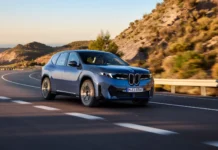
- Electric vehicle startups are facing intense pressure to achieve profitability, but it’s a tough market with new cars getting more expensive than ever.
- In the face of borrowing costs rising and demand falling off, companies like Lucid, Lordstown Motors and Rivian face an even greater squeeze as they’ve attempted to ramp up production.
- More established EV players turning to price cuts to drive demand, like Tesla, could spell even more trouble as EV startups post their quarterly financial results this week.
EV startups are in for a rough ride as economic forces take a bite out of demand.
When they first emerged on the scene a few years ago, cars like the Rivian R1S and the Lucid Air pitched themselves as market disruptors. Not only would they give the legacy automakers something to think about, but they’d outmaneuver even established EV players like Tesla. We’ve certainly welcomed new names and more choice in the growing electric vehicle segment, but storm clouds are on the horizon as economic forces could (or already are) complicating these startups’ ramp-up efforts.
According to Visible Alpha data as reported by Reuters, Lucid is expended to endure a 36% drop in cash reserves as it reports its first-quarter earnings Monday. Analysts and investors are also closely eyeing Irvine, California-based Rivian Automotive, whose cash balance is expected by fall by around 7% to $10.78 billion from the last quarter of 2022, according to Visible Alpha’s estimates. Rivian may also post a larger-than-expected $1.75 billion loss, amid its ambition to expand its sales volume in a quarter when deliveries and production actually fell.
If Tesla has to cut prices…what does that mean for startups?
The potential troubles reverberate beyond just Lucid and Rivian, as analysts expect Fisker Inc. and Nikola, which both report earnings Tuesday, to slide between 5% and 15% with its cash-on-hand figures. Chair of hedge fund Great Hill Capital Thomas Hayes told Reuters, “any company that’s losing money with a low valuation is toast and EVs are no exception. I think it is just a slow bleed. Maybe they’ll get lucky and some of their technologies maybe bought by bigger players.”
Perhaps the best case in point for that scenario at the moment is Lordstown Motors, which may once again have to halt production as it navigates a tumultuous period with its tenuous partner, Taiwanese electronics manufacturer Foxconn. Short of a breakthrough in talks between those two parties or a rescue deal with some other investor puts Lordstown in a tough position, one where it may have to declare bankruptcy and stop production altogether.
In an unscheduled press release last Thursday, Lordstown said its sequential cash balance fell by 11%.
Even market leader Tesla has recently cut prices across its lineup to push higher volumes as EV demand slows. In part, automakers across the industry have acknowledged rocky times ahead as inflation and the rising costs of borrowing make the prospect of buying any new car, let alone an electric model, much more expensive.
Perhaps more troubling, Lucid and Rivian both announced they would stop providing data on reservations moving forward.
The decision creates uncertainty among investors, as the companies are engaging in a “disturbing development”, according to CFRA Research analyst Garrett Nelson – potentially withholding those numbers to real troubles ahead. At a glance, however, we can at least get an impression of their outlook through its investor relations site and earnings calls. “What we’ve seen is a trend of less transparency in the reservation count, but overall competition is a big problem,” he said.

























